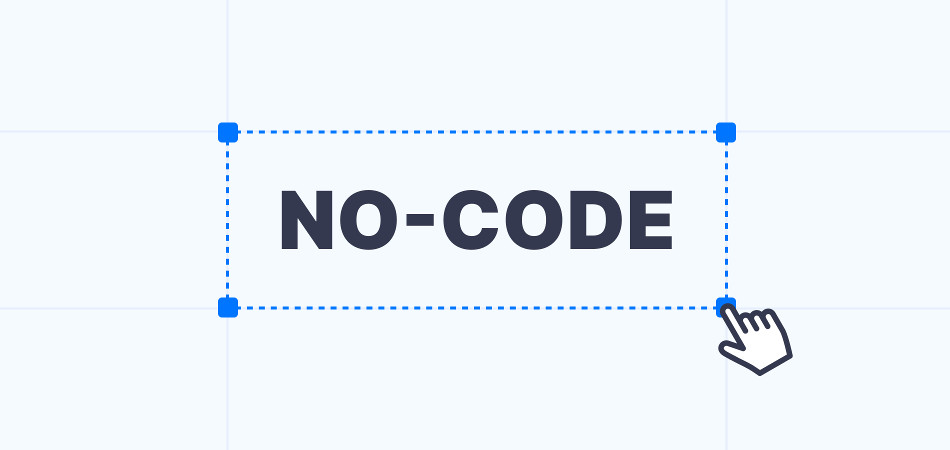Should developers fear low-code and no-code?
Surely you’ve heard of a no-code or low-code approach to software development. Are programmers’ jobs at risk? Recently, on Twitter, there is a very popular opinion that in the future no-code or low-code will drastically change the software industry. What are these solutions and is there anything to worry about?

Low-code #
Low-code solutions aim to reduce the amount of manual programming required to create applications. A drag-and-drop approach is used to achieve this. Most applications can be created using of pre-built modules, and the rest can be added by writing the appropriate code. This makes software development much faster and allows you to focus the most important aspects. But you still need to write code.
No-code #
No-code solutions go a step further. Here we simplify the whole process so that people who are not programmers can create an application. Again, we usually have drag’n’drop editors that allow you to ‘click yourself’ a website or application from scratch without writing any code.
Among such services, are those that allow you to create entire pages, e.g. Carrd, but also smaller ones, specialized in a given functionality, e.g. Typeform, for creating advanced forms. In addition, it is worth mentioning the platform that allows you to create very advanced automations. In Zapier, we have access to across 5000+ app integrations. Using them we can react to given events with a specific action. Due to the number of possible connections between applications, we are able to create a very advanced process. What’s more, if we don’t find what we need, we can write our own integration.
Pros and cons of both solutions #
Both solutions are very similar and sometimes it is difficult to determine which group a given platform belongs to.
The obvious advantage is the speed of software development. The rest is a bit of a derivative of this, i.e. the ability to ship faster, lower application development costs, etc. However, it has its downsides.
- we do not know what logic is under specific components
- we can’t predict what result code will be generated
- we are dependent on what the platform provided us with
- in no-code platforms it can be hard or even impossible to create unique/complex actions
Let’s talk about the price. On the one hand, software development using the traditional method is not cheap, both in terms of costs and time. On the other hand, when we use external no-code platforms, the cost can increase significantly with the number of users.
So, is it cheaper or more expensive in the end? It depends.
Opportunity or threats for developers? #
The most important question that arises is what will change in our (programmers) work. We can’t expect that nothing will change, because the world is developing too fast. It’s worth looking back, because not so long ago there were no job offers such as mobile programmer, data scientist, etc. On the other hand, has anyone recently seen offers for Pascal or Flash programmers, etc. The world is changing, new technologies, programming languages appear and replace the old ones.
What will change in our (programmers) work? We can’t expect that nothing will change, because the world is developing too fast. Some of programming jobs will become obsolete. As programming languages, tools, and techniques become more automated and user-friendly, some roles that used to require extensive coding experience may no longer be necessary. This could mean that fewer programmers will be needed in the future, as no-code tools become more ubiquitous.
The world is constantly evolving, new technologies and programming languages appear and replace the old ones. So, the demand for programmers is likely to change significantly in the coming years, with a shift towards a more diverse range of coding skills and the adoption of no-code tools. It will be interesting to observe how the roles within the programming industry will evolve to meet these needs.
Has anyone recently seen offers for Pascal or Flash programmers, etc? No, but I recently heard there’s a urgent new demand for Tik Tok developers 😅